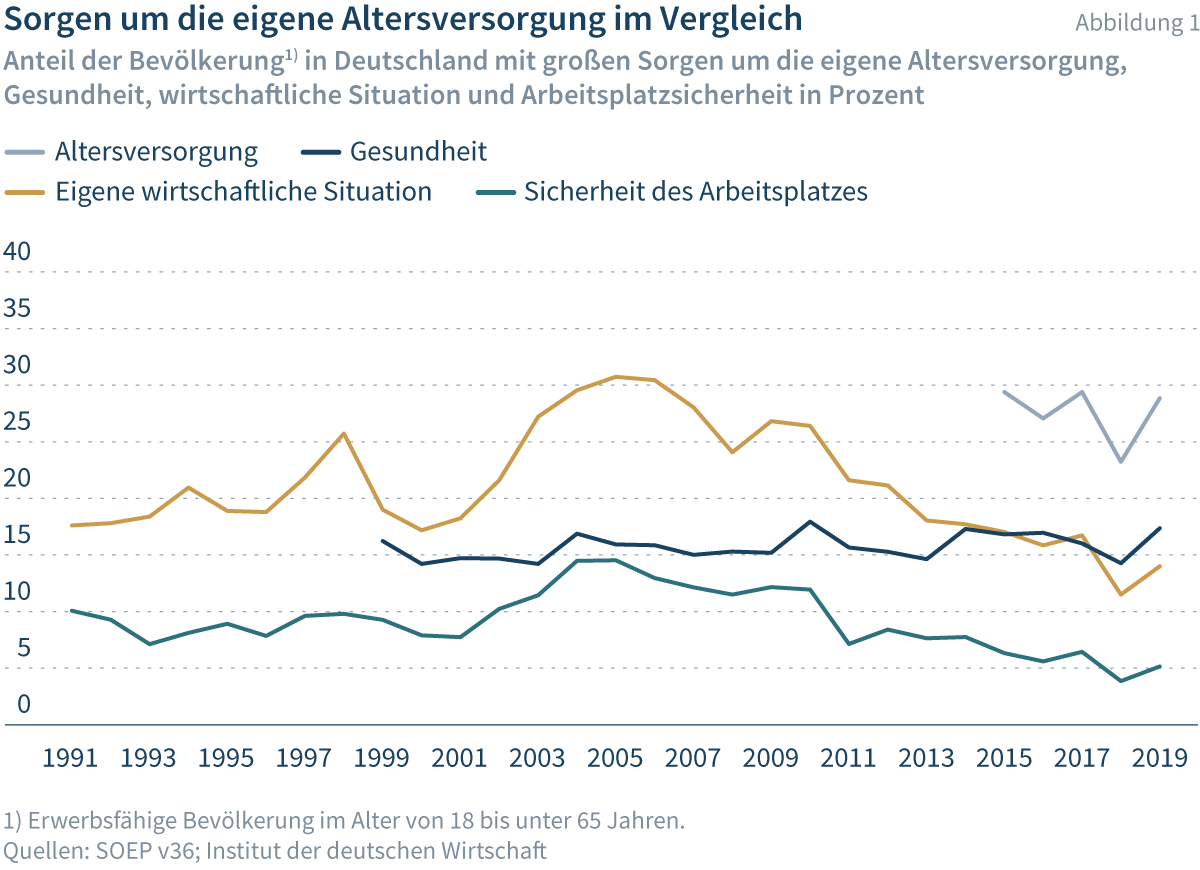The level of statutory pensions for future generations is set to decline systematically. If future retirees are to maintain their standard of living, they will therefore need to supplement their statutory benefits with private and occupational pensions – a change already initiated with the pension reforms of the early 2000s.

Pension Concerns in Germany: Determinants and Normative Implications

The level of statutory pensions for future generations is set to decline systematically. If future retirees are to maintain their standard of living, they will therefore need to supplement their statutory benefits with private and occupational pensions – a change already initiated with the pension reforms of the early 2000s.
However, the occupational and private pension coverage of certain parts of the population, such as low earners, is well below the national average. The present study examines how individuals perceive the issue of old-age pensions, analysing data from the German Socio-Economic Panel to determine how concern about future pension entitlements is distributed among the population. The results show that women, tenants, divorcees and people with relatively low incomes are more likely to be concerned about their pension coverage than their peers in other groups. In addition, those enrolled in an occupational pension scheme are less likely to experience anxiety on this account. While the new government’s coalition agreement includes the possibility of making financial planning for retirement compulsory, albeit with an opt-out clause, the empirical findings presented here suggest that it would be more advisable to focus on those parts of the population facing a high risk of old-age poverty and concentrating on fostering adequate pension provision there.


Pension Concerns in Germany: Determinants and Normative Implications

More on the topic

The Political Economy of Pension Reform
As the German population ages, the country’s statutory pension scheme, which is financed on a pay-as-you-go basis, requires higher and higher contributions while the level of pensions is falling.
IW
Expenditures and Revenues in Germany’s Statutory Health Insurance
Almost annually recurring deficits in Germany’s statutory health insurance system have led to a steady rise in the contribution rate, a percentage of earned income.
IW